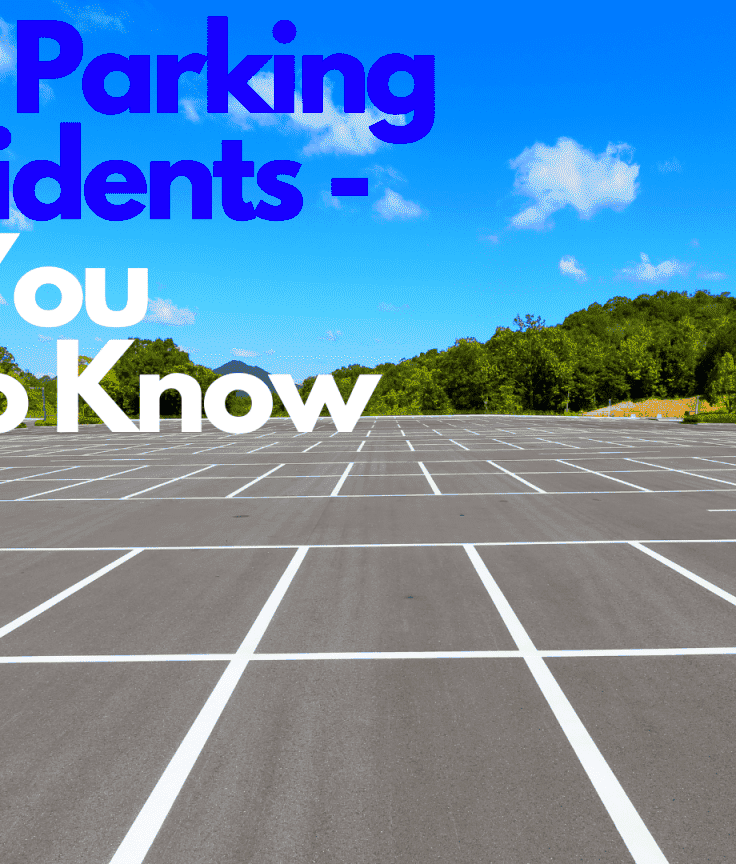Florida Parking Lot Accident Laws Explained
Parking lots are often busy places where accidents can happen. In Florida, understanding the laws around these accidents is crucial for anyone who drives. Whether it’s a minor bump or a serious collision, knowing your rights and responsibilities can help you navigate the aftermath of an accident. Florida follows a “no-fault” insurance law, which means your insurance covers your injuries regardless of who caused the accident. However, this doesn’t eliminate the need for understanding liability and claims.
Common Causes of Parking Lot Accidents
Parking lot accidents can occur for various reasons. Here are some of the most common causes:
- Distracted Driving: Drivers often use their phones or get distracted by passengers.
- Reversing: Many accidents happen when drivers back out of parking spaces without checking for pedestrians or other vehicles.
- Poor Visibility: Poor lighting or obstructed views can lead to collisions.
- Speeding: Some drivers ignore speed limits in parking lots, leading to accidents.
- Pedestrian Errors: Sometimes, pedestrians step into traffic unexpectedly.
By being aware of these causes, drivers can be more cautious and prevent accidents.
Determining Liability in Parking Lot Accidents
Figuring out who is at fault in a parking lot accident can be complicated. Here’s how liability is typically determined:
- Florida’s Comparative Negligence Rule: Florida uses a comparative negligence rule, which means each party can be assigned a percentage of fault. This affects how much compensation they can claim.
- Witness Statements: Eyewitness accounts can play a significant role in determining liability.
- Surveillance Footage: Many parking lots have cameras that can provide valuable evidence.
- Police Reports: A police report can help establish the facts of the accident and identify the responsible party.
It’s essential to gather as much evidence as possible to support your case. This might include photos of the scene, witness contact information, and any available video footage.
Insurance Coverage for Parking Lot Accidents
When an accident happens in a parking lot, insurance coverage plays a crucial role in managing the aftermath. In Florida, all drivers are required to carry a minimum level of insurance, which includes Personal Injury Protection (PIP) and Property Damage Liability (PDL). This coverage is designed to help cover medical expenses and damages, regardless of who is at fault in the accident.
Here’s a quick overview of the types of coverage that may apply:
- Personal Injury Protection (PIP): This covers your medical expenses and lost wages up to a certain limit, no matter who caused the accident.
- Property Damage Liability (PDL): This covers damages to another person’s property, such as their vehicle or personal belongings.
- Collision Coverage: If you have collision coverage, it can help pay for repairs to your vehicle after an accident.
- Uninsured/Underinsured Motorist Coverage: This is important if the other driver doesn’t have enough insurance to cover your damages.
Understanding these coverages can help you navigate your insurance policy and ensure you’re adequately protected in case of an accident.
Steps to Take After a Parking Lot Accident
After a parking lot accident, knowing what to do next is essential. Here are some important steps to follow:
- Ensure Safety: First, check for injuries. If anyone is hurt, call 911 immediately.
- Move to a Safe Area: If possible, move vehicles out of the way to avoid further accidents.
- Exchange Information: Gather contact and insurance information from the other driver(s) involved. Be sure to get:
- Name and contact details
- Insurance company and policy number
- Vehicle details (make, model, and license plate number)
- Document the Scene: Take photos of the accident scene, including vehicle positions and any damage.
- Report the Accident: Notify your insurance company about the accident as soon as possible.
- Seek Medical Attention: Even if you feel fine, it’s wise to see a doctor, as some injuries may not be immediately apparent.
Following these steps can help protect your rights and ensure a smoother claims process.
How to File a Claim for a Parking Lot Accident
Filing a claim after a parking lot accident can seem daunting, but breaking it down into steps makes it easier. Here’s how to go about it:
- Contact Your Insurance Company: Call your insurer to report the accident. Provide all necessary information, including the accident details and any documentation you collected.
- Fill Out the Claim Form: Your insurance company will provide a claim form. Complete it accurately and thoroughly, detailing what happened.
- Provide Supporting Documentation: Attach all evidence you collected, such as photos, witness statements, and police reports.
- Cooperate with the Insurance Adjuster: After filing, an adjuster will review your claim. Be available to answer questions and provide any additional information they may need.
- Review the Settlement Offer: Once the claim is processed, you’ll receive a settlement offer. Review it carefully; don’t hesitate to negotiate if it seems low.
- Keep Records: Maintain copies of all correspondence and documents related to the claim for your records.
By following these steps, you can navigate the claims process more confidently and ensure you receive fair compensation for your damages.
Potential Damages You Can Claim
After a parking lot accident, you may be entitled to various types of damages depending on the specifics of your case. Understanding what you can claim is essential for ensuring you receive fair compensation. In Florida, damages can be broadly categorized into two types: economic and non-economic damages.
Here’s a breakdown of the potential damages you can claim:
- Medical Expenses: This includes all costs related to treatment, such as hospital bills, rehabilitation, and any future medical care needed.
- Lost Wages: If your injuries prevent you from working, you can claim the income you would have earned during your recovery period.
- Property Damage: This covers the cost of repairing or replacing your vehicle and any personal property damaged in the accident.
- Pain and Suffering: You may be eligible to claim compensation for the physical pain and emotional distress caused by the accident.
- Loss of Enjoyment of Life: If your injuries affect your ability to participate in activities you once enjoyed, you can seek damages for this loss.
- Out-of-Pocket Expenses: Any additional costs you incur due to the accident, such as transportation to medical appointments, can also be claimed.
Consulting with a personal injury attorney can help you assess your situation and ensure you pursue all eligible damages.
Frequently Asked Questions About Parking Lot Accidents
Parking lot accidents can raise many questions, especially when it comes to liability and insurance. Here are some frequently asked questions that might help clarify common concerns:
- Who is at fault in a parking lot accident? Liability can depend on the circumstances, such as whether a driver was backing out or if a pedestrian was jaywalking.
- Do I need a police report? While it’s not always required, having a police report can provide valuable evidence when filing a claim.
- What if the other driver doesn’t have insurance? If you have uninsured motorist coverage, it can help cover your damages.
- Can I still file a claim if the accident was partly my fault? Yes, Florida’s comparative negligence law allows you to claim damages even if you share some responsibility.
- How long do I have to file a claim? In Florida, you generally have four years from the date of the accident to file a personal injury claim.
These FAQs can guide you through the initial stages of dealing with a parking lot accident and help you know what to expect.
Conclusion on Florida Parking Lot Accident Laws
Understanding Florida parking lot accident laws is vital for anyone who drives. From knowing your insurance coverage to understanding potential damages and liability, being informed can make a significant difference in navigating the aftermath of an accident. Remember that Florida operates under a no-fault insurance system, which means that your own insurance will typically cover your medical expenses and damages, regardless of who is at fault.
If you find yourself in a parking lot accident, follow the essential steps to protect your rights, gather all necessary documentation, and consider consulting a personal injury attorney to help you maximize your claim. By being proactive and informed, you can effectively manage the complexities of parking lot accident laws and ensure that you receive the compensation you deserve.


